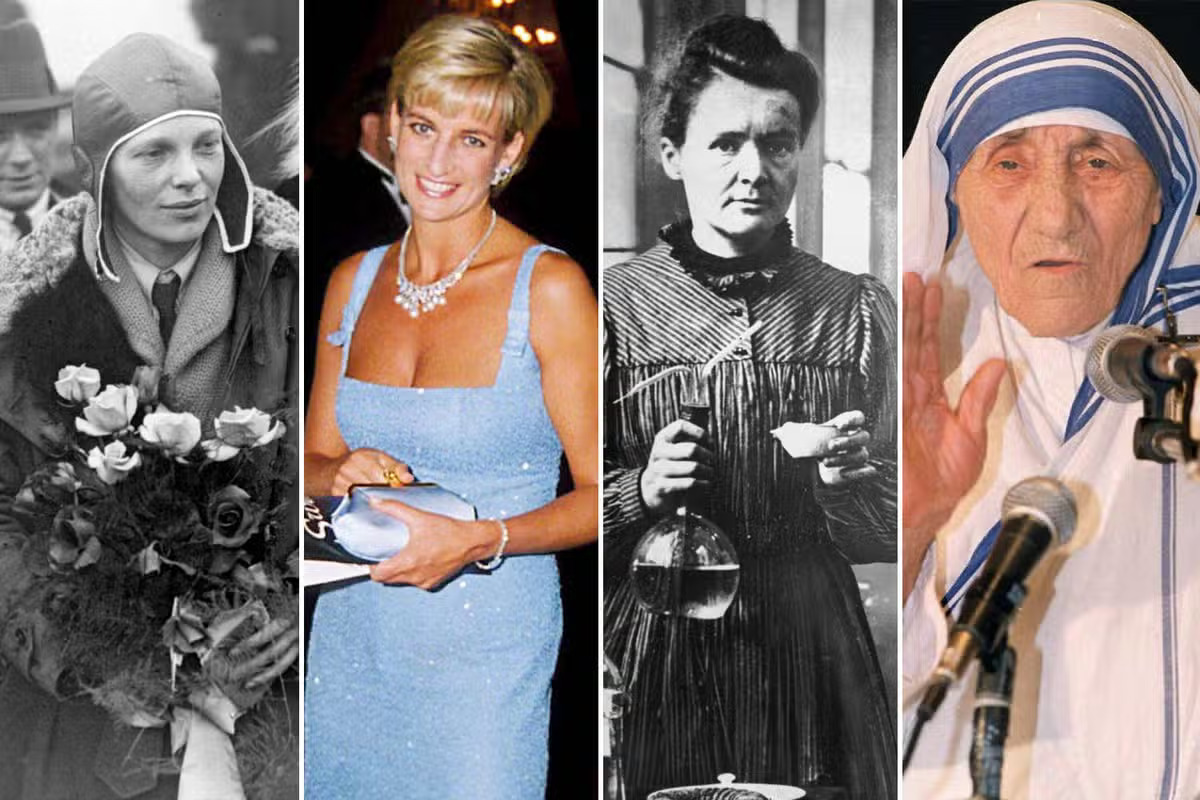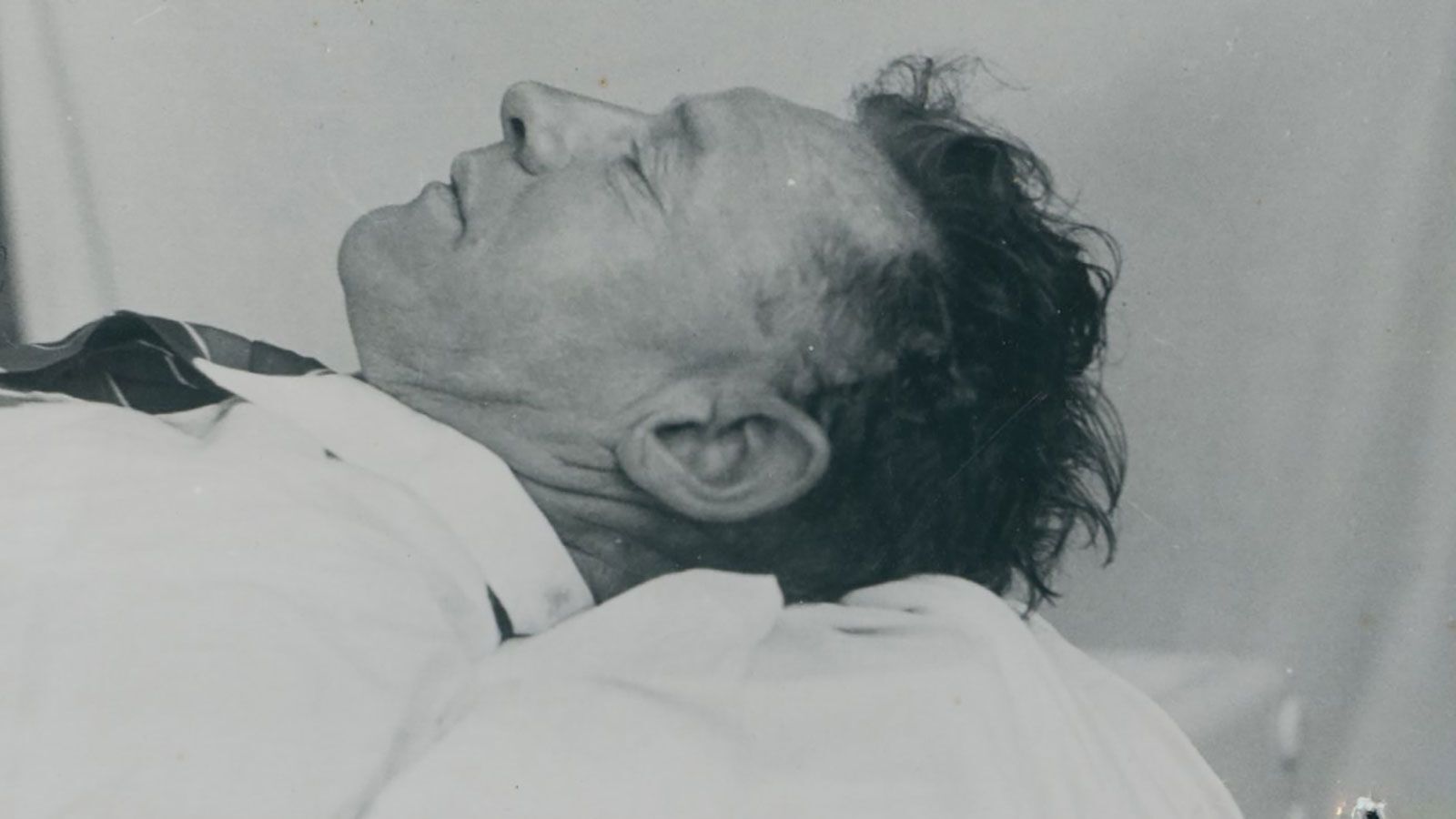
Did you know that women have been shaping history for thousands of years? From ancient queens to modern-day leaders, women have played crucial roles in every era. Despite facing numerous challenges, their contributions have been monumental. For instance, Cleopatra ruled Egypt with intelligence and charm, while Marie Curie revolutionized science with her groundbreaking research on radioactivity. Women have fought for their rights, led nations, and made significant strides in various fields. This blog post will highlight 35 incredible facts about women's history that will inspire and educate. Get ready to be amazed by the resilience, courage, and achievements of women throughout the ages.
Key Takeaways:
- Women have been pioneers in shaping history, from fighting for suffrage to making groundbreaking contributions in science, politics, arts, sports, business, and medicine. Their impact has been felt across the globe.
- Despite facing barriers, women have excelled in various fields, breaking records, leading nations, and revolutionizing industries. Their resilience and achievements have paved the way for future generations of women.
Pioneers in Women's Rights
Women have played crucial roles in shaping history. Here are some groundbreaking facts about the pioneers in women's rights.
-
Susan B. Anthony was arrested in 1872 for voting illegally in the U.S. presidential election. Her act of defiance was a pivotal moment in the women's suffrage movement.
-
Elizabeth Cady Stanton co-authored the "Declaration of Sentiments," presented at the Seneca Falls Convention in 1848. This document was a cornerstone for women's rights in America.
-
Sojourner Truth, an African American abolitionist and women's rights activist, delivered her famous "Ain't I a Woman?" speech in 1851. Her words highlighted the intersectionality of race and gender.
-
Emmeline Pankhurst founded the Women's Social and Political Union in 1903, which used militant tactics to fight for women's suffrage in the UK. Her efforts were instrumental in women gaining the right to vote in 1918.
-
Alice Paul was a key figure in the passage of the 19th Amendment in 1920, which granted American women the right to vote. She also authored the Equal Rights Amendment, which has yet to be ratified.
Women in Science and Technology
Women have made significant contributions to science and technology, often overcoming substantial barriers.
-
Marie Curie was the first woman to win a Nobel Prize and remains the only person to win Nobel Prizes in two different scientific fields: Physics and Chemistry.
-
Rosalind Franklin played a crucial role in discovering the DNA double helix structure. Her X-ray diffraction images were key to understanding DNA's form.
-
Ada Lovelace is considered the world's first computer programmer. She wrote an algorithm for Charles Babbage's early mechanical general-purpose computer, the Analytical Engine.
-
Katherine Johnson, a mathematician at NASA, calculated trajectories for the Apollo missions. Her work was vital for the success of the first manned moon landing.
-
Hedy Lamarr, an actress and inventor, co-developed a frequency-hopping spread spectrum technology during World War II. This technology is the basis for modern Bluetooth and Wi-Fi.
Women in Politics
Women have broken barriers and led nations, making impactful decisions on a global scale.
-
Margaret Thatcher was the first female Prime Minister of the United Kingdom, serving from 1979 to 1990. She was known as the "Iron Lady" for her strong leadership style.
-
Indira Gandhi was the first and, to date, the only female Prime Minister of India. She served four terms and was a central figure in Indian politics.
-
Angela Merkel became the first female Chancellor of Germany in 2005. She has been a dominant force in European politics for over a decade.
-
Ellen Johnson Sirleaf was the first elected female head of state in Africa, serving as the President of Liberia from 2006 to 2018. She won the Nobel Peace Prize in 2011.
-
Benazir Bhutto was the first woman to head a democratic government in a majority Muslim nation, serving as Prime Minister of Pakistan in the late 1980s and 1990s.
Women in Arts and Literature
Women have enriched arts and literature with their creativity and unique perspectives.
-
Jane Austen wrote novels that have become classics of English literature, including "Pride and Prejudice" and "Sense and Sensibility." Her works critique the British landed gentry at the end of the 18th century.
-
Frida Kahlo was a Mexican painter known for her self-portraits and works inspired by nature and Mexican artifacts. Her art explored identity, postcolonialism, gender, class, and race in Mexican society.
-
Maya Angelou was an American poet, singer, memoirist, and civil rights activist. Her series of seven autobiographies, starting with "I Know Why the Caged Bird Sings," brought her international recognition.
-
Virginia Woolf was a central figure in the modernist literary movement of the 20th century. Her novels, including "Mrs. Dalloway" and "To the Lighthouse," are celebrated for their innovative narrative techniques.
-
Toni Morrison was the first African American woman to win the Nobel Prize in Literature. Her novels, such as "Beloved" and "Song of Solomon," explore African American culture and history.
Women in Sports
Women athletes have shattered records and stereotypes, proving their prowess in various sports.
-
Billie Jean King won 39 Grand Slam titles in tennis and was a pioneer for gender equality in sports. Her victory in the "Battle of the Sexes" match in 1973 was a significant moment for women's sports.
-
Wilma Rudolph overcame polio to become the first American woman to win three gold medals in track and field at a single Olympics, in 1960.
-
Serena Williams has won 23 Grand Slam singles titles, the most by any player in the Open Era. She is considered one of the greatest tennis players of all time.
-
Mia Hamm was a key player in the U.S. women's soccer team, leading them to two World Cup victories and two Olympic gold medals. She is a trailblazer for women's soccer.
-
Simone Biles is the most decorated gymnast in World Championship history, with 25 medals. Her athleticism and skill have redefined the sport.
Women in Business
Women have made significant strides in the business world, leading major companies and creating successful enterprises.
-
Madam C.J. Walker was the first female self-made millionaire in America. She made her fortune by developing and marketing a line of beauty and hair products for black women.
-
Indra Nooyi served as the CEO of PepsiCo from 2006 to 2018. She was one of the few women of color to lead a Fortune 500 company.
-
Sheryl Sandberg is the COO of Facebook and author of "Lean In," a book encouraging women to pursue their ambitions and change the conversation around gender in the workplace.
-
Oprah Winfrey is a media mogul, actress, and philanthropist. She is one of the most influential women in the world and the first African American woman to become a billionaire.
-
Mary Barra became the first female CEO of General Motors in 2014. She has been instrumental in leading the company through significant transformations.
Women in Medicine
Women have made groundbreaking contributions to medicine, improving healthcare and saving lives.
-
Elizabeth Blackwell was the first woman to receive a medical degree in the United States, in 1849. She paved the way for women in medicine.
-
Florence Nightingale is considered the founder of modern nursing. Her work during the Crimean War revolutionized the field of nursing and hospital sanitation.
-
Marie Stopes was a pioneer in the field of family planning and reproductive health. She opened the first birth control clinic in Britain in 1921.
-
Virginia Apgar developed the Apgar Score, a quick and simple way to assess the health of newborns immediately after birth. This system is still used worldwide.
-
Gerty Cori was the first woman to win a Nobel Prize in Physiology or Medicine. Her research on carbohydrate metabolism was groundbreaking.
Celebrating Women's History
Women's history is filled with remarkable achievements and inspiring stories. From trailblazers like Marie Curie and Rosa Parks to modern icons like Malala Yousafzai, women have continually shaped our world. Their contributions span science, politics, arts, and social movements, proving that gender is no barrier to greatness.
Understanding these facts helps us appreciate the struggles and victories that have paved the way for today's opportunities. It also reminds us of the ongoing fight for equality and recognition. By celebrating these achievements, we honor the past and inspire future generations to continue breaking barriers.
Keep learning, sharing, and celebrating women's history. Every story adds to the rich tapestry of human experience, showing that everyone has the power to make a difference.
Frequently Asked Questions
Was this page helpful?
Our commitment to delivering trustworthy and engaging content is at the heart of what we do. Each fact on our site is contributed by real users like you, bringing a wealth of diverse insights and information. To ensure the highest standards of accuracy and reliability, our dedicated editors meticulously review each submission. This process guarantees that the facts we share are not only fascinating but also credible. Trust in our commitment to quality and authenticity as you explore and learn with us.


